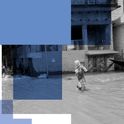Lisa Wise, Director of global policy, Save the Children UK
The UK is taking a sledgehammer to its aid budget. Where the cuts will fall is not fully known, but we don’t have far to look for a tragic blueprint.
South Sudan rarely makes headlines, but children there are on the front line of conflict and the escalating climate crisis. The world’s newest country is at the sharp end of today’s greatest threats. Earlier this year, a deadly cholera outbreak swept through remote communities. Children who fell sick had no choice but to attempt a gruelling three-hour walk in blistering heat to reach the nearest functioning clinic.
For some, it was too much. At least three children died on the way. Due to recent US aid cuts, health centres run by South Sudanese teams that we supported and that could have saved them had been forced to shut their doors. This is the cold hard reality of what happens when global solidarity dries up. It is immediate and brutal. And now, the UK is following suit.
The UK’s cuts were announced with barely a hint of a plan. But the emerging numbers are stark. By 2027 the UK’s overseas aid spending will reach the lowest levels on record, as a share of gross national income. The UK is on course to cut vital lifelines from more than 62 million people. That is likely to include slashing nutrition support by up to 90 per cent and helping millions fewer with food and cash when war or natural disasters tear their lives apart.
Our teams across the world are already making impossible decisions every day. South Sudan is one example of many
Partners and communities we work with are braced for impact. Crucially, the children who will be hardest hit don’t even know what’s coming. Our teams across the world are already making impossible decisions every day. South Sudan is one example of many. Countless more are coming.
None of us want a world where so many lives can be upended based on the political currents in a few of the richest countries. We need a reliable and fair system of global solidarity that allows us to build a stable future together, in partnership.
The foreign secretary David Lammy has spoken of a foreign policy rooted in “progressive realism” and “respectful partnerships”. Yet what respect is shown when the UK turns its back on communities it has long supported? How is it realistic to ignore the link between human development and global stability?
UK aid has never been about charity. It’s an investment in a safer, healthier, more prosperous world—for all of us. It helps curb disease outbreaks before they reach our borders, fights climate change, supports education that prevents future conflicts, and builds the kind of resilience that allows countries to thrive independently. These are mutual benefits, not handouts.
Philip Goodwin, Chief executive officer of the UK Committee for Unicef
As I write this, nearly one in five children around the world are living in the midst of active conflict and a record 50 million children are displaced, while nearly half live in countries that are at extremely high risk of the impacts of climate change.
Put simply, the world’s poorest children are living in crisis, and hard-won progress is in reverse. The unprecedented global funding crisis which has seen numerous governments around the world slash aid budgets is rapidly turning into a child survival crisis. We project a 20 per cent reduction, at least, in global funding across Unicef’s humanitarian, development and child rights work.
While it is not yet fully clear where the cuts will fall, we do know that nearly 15 million children and mothers could be vulnerable to severe malnourishment as a direct result.
Cuts to the UK aid budget threaten to make this perilous situation even worse.
We project a 20 per cent reduction, at least, in global funding across UNICEF’s humanitarian, development and child rights work
During the last round of UK aid reductions in 2021, children were disproportionally hit, with funding for child-focused bilateral aid falling by almost 60 per cent. If this happens again, child-focused aid could fall by £500m, leaving children with less than 20 per cent of the support they had in 2019.
In reality, this could mean millions of children not having access to critical healthcare such as life-saving vaccines, not having enough to eat and missing out on their essential learning.
We know that difficult decisions are being made, but the world’s most vulnerable children cannot be the ones to disproportionately suffer. Unicef UK is calling for the government to commit to spending at least 25 per cent of aid on children—which would ensure they are at least protected from some of the impacts of these cuts in funding.
The UK’s commitment to spending 0.7 per cent of national income on international aid demonstrated the UK’s leadership and compassion. The cut to 0.3 per cent will make it impossible for the government to achieve its aspirations of tackling extreme poverty, growing global prosperity, addressing the climate crisis and building long-term global security. Both behind the scenes and publicly, Unicef UK continues to urge the prime minister to reconsider his decision, and—at the very least—protect the world’s children from its impact.
Children’s lives and futures are at stake, precisely when they need support the most. It’s vital that they get it.
Neal Russell, Paediatric doctor and Doctors Without Borders adviser
They could not show us all of the graves. Seven children died in the village, but eight died in their parents’ arms on the long journey by foot before reaching the hospital.
In this community, in a remote part of South Sudan, people are traditionally buried in the place where they die. The children lying under little mounds of soil by the door of the family hut will be passed every day by their loved ones, while the others lie by the side of the road.
On a visit to a nearby clinic, the community—unsure we would believe the death rate of the recent measles epidemic—showed us the evidence instead. They shared the names of every child.
The toxic synergy between malnutrition and measles explained the death toll. While walking under the scorching April sun, people described how flooding had destroyed crops the previous year, piling additional suffering onto the years of war. The community was dependent on food assistance from the UN World Food Programme. Those funds had been cut due to reductions in humanitarian funding.
Withdrawing aid to people in humanitarian crises means many will die. At Doctors Without Borders—independent and reliant on funding from individuals rather than governments—we often remain in crisis settings to face the consequences of the departure or closure of other organisations as international funds come and go with the political winds.
Today feels different with the threat of widespread closure of humanitarian programmes
But 2025 feels different, with the threat of widespread closure of humanitarian programmes, unprecedented shortfalls in funding for nutrition, and potentially significant cuts to global vaccination programmes, among other things— not to mention the blockage of humanitarian assistance in places like Gaza.
In Darfur, a nurse described the tears of relief in his six-year-old sister’s eyes at the sight of the food drops during the famine in 1985. In the years that followed, an international consensus emerged that widespread death in famine can and should be prevented, early warning systems were developed, and experts suggested that conquering famine was within reach.
Today—even with famine declared in Darfur, and despite claims that Sudan would be protected from UK aid cuts—the kind of scale-up required remains hard to find. More visible are the old placards and logos of USAID and the like, cruel memorials to the humanitarian responses of the past.
“We shouldn’t judge the actions of the past by the standards of today,” sounds increasingly like a sentence which should be said in reverse. But donor governments who cut humanitarian assistance, and those who would rather not know, may both take some comfort: funding for systems that measure mortality is also being cut, meaning that the impact of those decisions may remain largely invisible.
We will not see all the graves.












